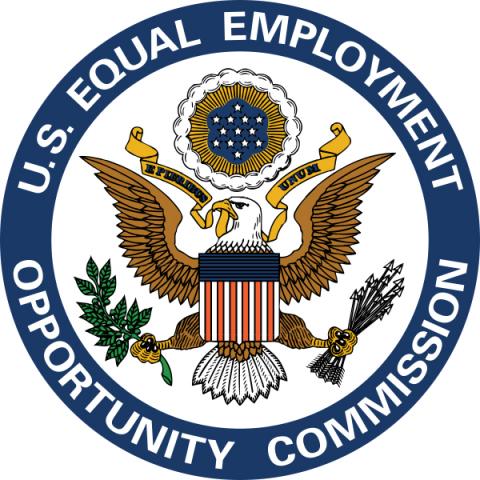
If you are not getting paid at least minimum wage, being paid on time, getting paid the overtime you deserve, or getting rest breaks you are entitled to, your employer may be violating state and federal laws. In most cases, your options are to file a complaint with the appropriate government agency or file a legal action in court. What you should do depends on your situation.
If you work for a restaurant, you may want to examine your pay stub closely. Restaurants are infamous for playing fast and loose with wage and hour laws, especially for making employees work “off the clock” so they work for free or do not qualify for overtime. Some restaurant chains currently facing wage and hour lawsuits include the following:
- Darden Restaurants, whose restaurants include Red Lobster, Olive Garden, Longhorn Steakhouse, Bahama Breeze, and The Capital Grille, was sued by two employees who alleged that they were forced to work without pay. An attempt to obtain class action status for the lawsuit failed.
- McDonald’s workers in California, Michigan, and New York have filed lawsuits against the company and several franchise owners, alleging that they illegally underpaid employees by erasing hours from their timecards, failing to pay overtime, and ordering them to work off the clock.
- Joe’s Crab Shack was sued in California state court by a group of managers who claimed that they were misclassified as exempt employees. They argued that they should have been treated as hourly employees eligible for overtime pay.
- TV’s own chef from Hell, Gordon Ramsay, owner of a restaurant in Los Angeles, was sued by former employees because he allegedly did not pay owed overtime or provide required breaks.
Dave & Busted?
 Currently, a possible settlement is pending for a proposed class of servers who worked for the arcade-dining restaurant chain Dave & Buster’s. In June, the plaintiffs’ attorneys asked a California federal judge to approve a $2.1 million settlement of a lawsuit claiming that the chain failed to pay the correct wages or provide adequate breaks. A net settlement of about $1.3 million would be allocated to 2,350 current and former Dave & Buster’s employees.
Currently, a possible settlement is pending for a proposed class of servers who worked for the arcade-dining restaurant chain Dave & Buster’s. In June, the plaintiffs’ attorneys asked a California federal judge to approve a $2.1 million settlement of a lawsuit claiming that the chain failed to pay the correct wages or provide adequate breaks. A net settlement of about $1.3 million would be allocated to 2,350 current and former Dave & Buster’s employees.
According to a website about the lawsuit maintained by the plaintiffs’ attorneys, the class action was filed on behalf of non-exempt, hourly paid servers who worked for Dave & Buster’s in California. The lawsuit was based on state law and started in state court but is now in federal court. After filing, the plaintiffs amended the complaint to include a claim that the chain also violated the federal Fair Labor Standards Act.
The lawsuit alleged that the restaurant committed the following violations:
- not paying all owed overtime wages,
- not paying state minimum wages because of lost wages while working off the clock,
- not providing meal and rest breaks,
- not paying employees the required one hour of pay for each missed meal or rest break,
- not giving employees proper wage statements,
- not paying wages on time during employment and upon termination,
- not paying split shift premium pay, and
- not reimbursing employees for business expenses.
Trending Lawsuits
 Across the country, lawsuits against restaurants doubled in the last 10 years in federal courts, according to the New Jersey Restaurant and Hospitality Association (NJRA). In New York, these legal claims nearly tripled from 2009 to 2015, up to 1,738 in the fiscal year that ended June 30, 2015. In fiscal year 2009, there were 652.
Across the country, lawsuits against restaurants doubled in the last 10 years in federal courts, according to the New Jersey Restaurant and Hospitality Association (NJRA). In New York, these legal claims nearly tripled from 2009 to 2015, up to 1,738 in the fiscal year that ended June 30, 2015. In fiscal year 2009, there were 652.
The NJRA suggested that the reason behind the lawsuits was the complexity of wage and hour laws. Because of this complexity, employers often do not understand or properly apply the law. Having employees partially paid by tips complicates matters and creates a special set of requirements. And pay practices common to restaurants, like tip pooling, increase the chances of problems.
If the restaurant owner fails to legally compensate tipped employees in any material way, the whole pay system fails as a result, exposing the employer to far larger problems than management may understand. For example, in New Jersey, if a restaurant does not follow the law, the payment it owes to all affected employees escalates from the “tip wage” of $2.13/hour to the minimum wage of $8.38.
Other common employer wage and hour violations include these:
- failing to track all hours worked by employees,
- requiring employees to work “off the clock,”
- misclassifying “exempt” employees under the “white collar exemptions,” and
- misclassifying employees as independent contractors.
Although prevalent in restaurants, misclassification as an independent contractor is an increasing problem for workers in just about every industry. This leads to potentially significant claims for unpaid minimum wages, overtime pay, denied benefits, unpaid taxes, and the failure to cover the worker’s injuries with workers’ compensation benefits.
The NJRA warns its members that noncompliance can lead to significant damages, so restaurant owners “must know the law and apply it properly.” It explains that there are “severe consequences for cutting corners,” making it clear that any short-term financial benefit from cheating employees carries a high risk of being sued and having to pay substantial fines. Hopefully, the association’s members are heeding the association’s final words of warning: “ignorance of the law is no excuse.”
Summing It Up
If you work as an hourly employee at a restaurant, you should take the following actions to protect your rights:
- keep track of when you clock in and out,
- check to see whether your records match the number of hours on your pay stub,
- see whether you were paid time and a half if you worked over 40 hours in a week,
- see who gets your tips if you are paid them, and
- keep track of the time you spend working before you are allowed to clock in.
Wage and hour laws can be complicated. It is not always easy for employers to figure out who is entitled to what pay. If you have any questions or feel your employer is not paying you properly, contact our office so we can talk about your situation, the laws that apply, and the best options to protect yourself legally.





